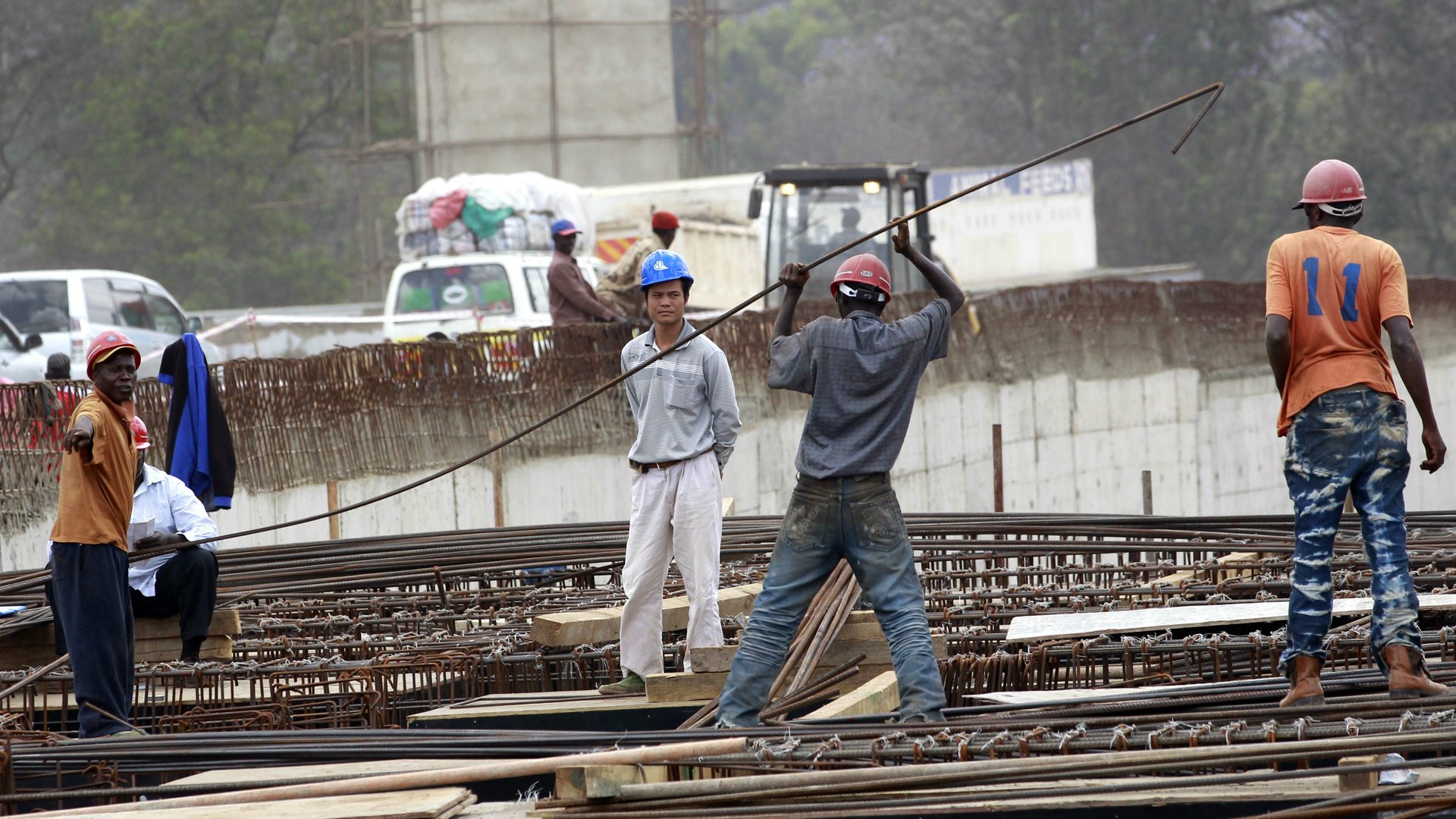Chinese investment in Africa has fallen 40% this year—but it’s not all bad news
As more signs of a slowing Chinese economy materialize, worries about how Africa will be affected have reached a new high. Chinese investment in Africa fell 40% in the first half of the year compared to the same period last year, ending up around $1.2 billion, according to Chinese officials on Tuesday (Nov. 17th). But other estimates have said the fall in Chinese investment is as much as 84%, to $568 million.


As more signs of a slowing Chinese economy materialize, worries about how Africa will be affected have reached a new high. Chinese investment in Africa fell 40% in the first half of the year compared to the same period last year, ending up around $1.2 billion, according to Chinese officials on Tuesday (Nov. 17th). But other estimates have said the fall in Chinese investment is as much as 84%, to $568 million.
Much of the continent’s economic growth over the past decade has depended on selling oil, iron ore, timber, copper, and other commodities to China. As China shifts to a more consumer-led economy, it should demand less of these resources. Others worry about the fate of needed infrastructure projects—roads, bridges, and dams—that Chinese companies have financed and helped build.
However the situation may not be as dire as it seems. “China is much bigger than it was a decade ago. Therefore, for it to be growing at 7%, in value-added terms, probably represents more growth than that when China was growing at 14%, off a much lower base,” said Razia Khan, head of Africa research at Standard Chartered, at a panel in South Africa earlier this month. “Our view is that China, in terms of how it manages its investment program, remains focused on Africa.”
China isn’t the only country investing in Africa. Overall foreign direct investment in Africa increased by 64% to $87 billion last year, with Western Europe contributing half of all greenfield investments in new physical facilities on the continent, according to a report by fDi Intelligence and This is Africa, both Financial Times services. China accounted for only 7% of greenfield investments with 28 projects, the seventh largest source of investment in terms of number of projects.
A Chinese slowdown may eventually fuel more investment to Africa as businesses spend less on facilities and equipment in China but the country’s saving surpluses still need to be spent somewhere. ”There’s likely to be a beneficiary from the Chinese saving glut, in the sense that a lot of Chinese foreign investment, including FDI, is likely to be headed that way, as domestic capital expenditure in China weakens and their continuing savings surpluses have to be invested abroad,” said Willem Buiter, adjunct senior fellow at the Council on Foreign Relations, said in August.